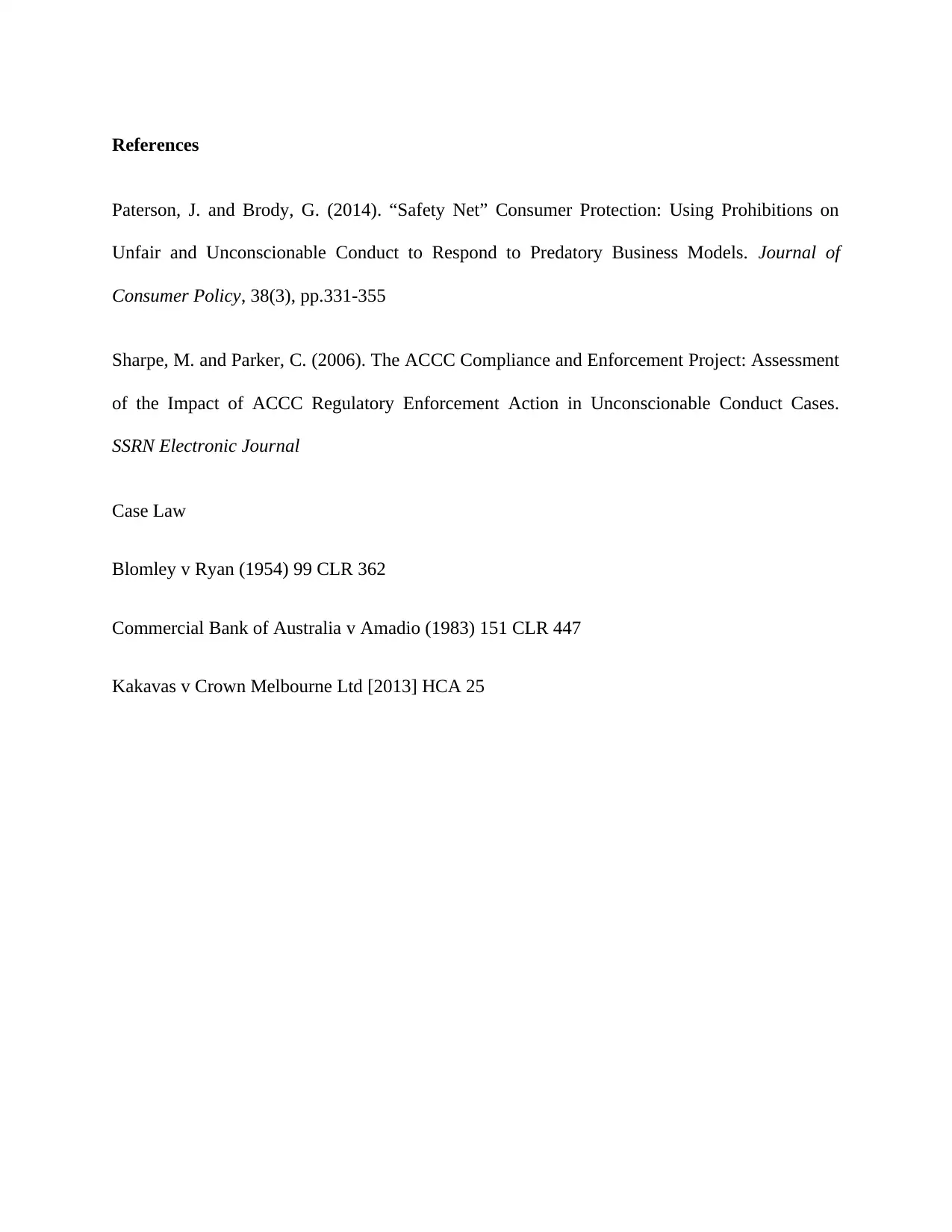Analyzing Vladimir's Case: Unconscionable Conduct in Contract Law
VerifiedAdded on 2023/03/21
|3
|473
|76
Case Study
AI Summary
This case study analyzes a situation where Vladimir, a recent migrant with limited English proficiency, unknowingly signed a contract transferring his money to a land broker. The analysis focuses on whether the contract is unconscionable under common law and the Australian Consumer Law (ACL). It references key cases like Blomley v Ryan, Commercial Bank v Amadio, and Kakavas v Crown Melbourne Ltd. The study concludes that due to Vladimir's vulnerability and the exploitative nature of the contract, Vladimir has the legal right to rescind the contract, highlighting the law's protection against unconscionable conduct in contractual agreements. Desklib offers similar solved assignments and past papers for students.
1 out of 3






![Contract Law: Critical Analysis of Kakavas v Crown Melbourne [2013]](/_next/image/?url=https%3A%2F%2Fdesklib.com%2Fmedia%2Fimages%2Fyr%2F308a259367ea4b5d9a3e96eab87c30ee.jpg&w=256&q=75)



![[object Object]](/_next/static/media/star-bottom.7253800d.svg)